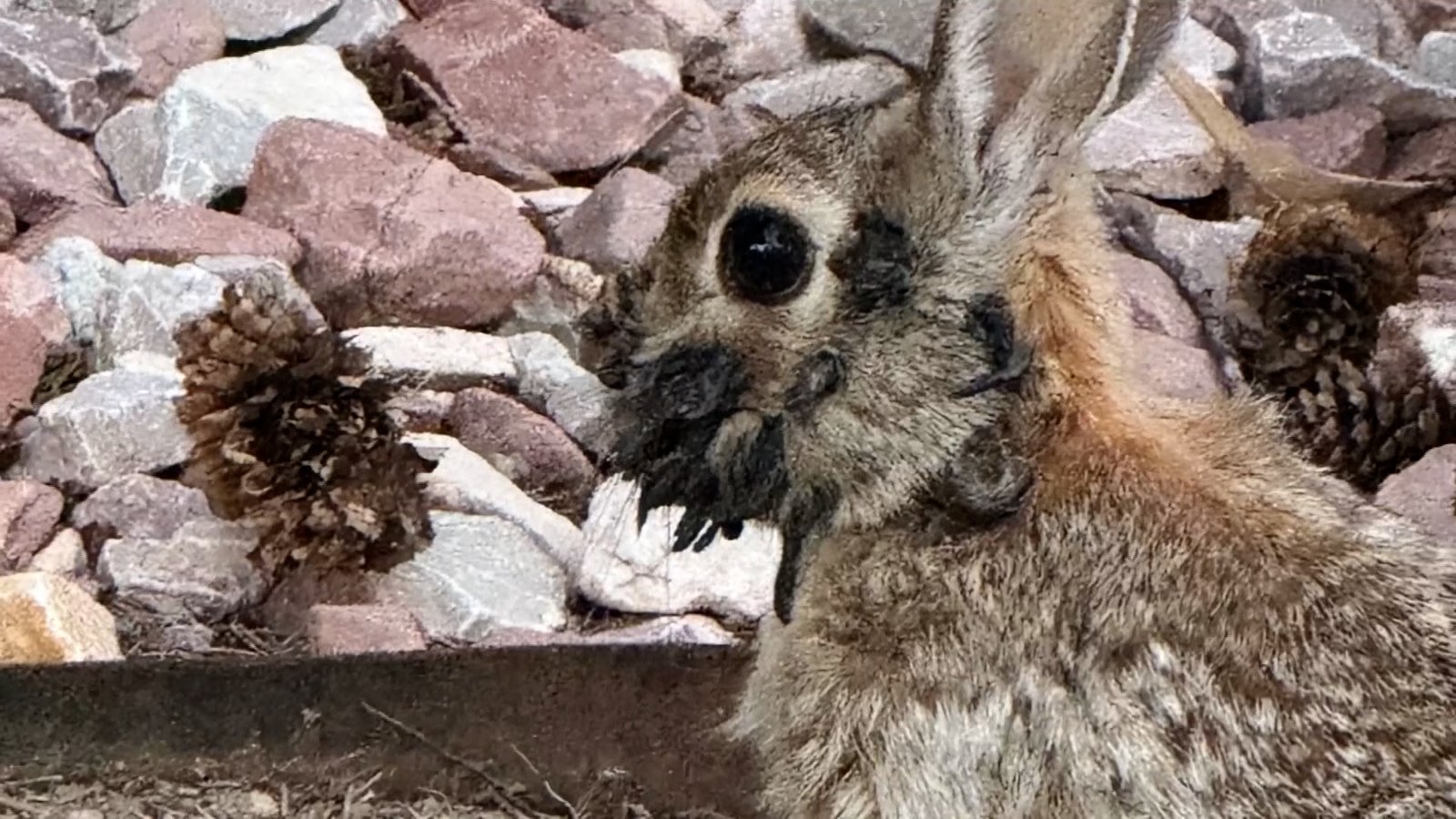‘Zombie’ Rabbits With Black Horns and Mouth Tentacles Spotted in Colorado Backyards, Experts Explain What’s Behind the Frightening Look
FORT COLLINS, COLORADO — Residents across northern Colorado are reporting sightings of strange-looking rabbits with black horns and tentacle-like growths emerging from their heads and mouths — sparking viral online reactions and comparisons to “zombie” or “Frankenstein” bunnies.
Wildlife experts have now identified the cause as Shope papillomavirus (SPV) — a rare, rabbit-only virus that creates wart-like growths, particularly on the face, head, and mouth. Though disturbing in appearance, officials say the condition poses no risk to humans or pets.
Viral Photos Spark Shock and Curiosity
Images of the affected rabbits have been widely shared across social media, with residents describing them as “terrifying” and “otherworldly.” In Fort Collins, local resident Susan Mansfield told reporters that one of the infected rabbits appeared to have “black quills or black toothpicks sticking out all around his or her mouth.”
“I thought he would die off during the winter, but he didn’t,” Mansfield said. “He came back a second year, and it grew.”
A reporter from 9NEWS Northern Colorado captured one of the animals on camera, showing dark, horn-like tumors that almost obscured its face. Similar photos on Reddit have gone viral, with thousands of users comparing the creatures to zombies and mythical monsters.
Experts Identify the Virus Behind the ‘Zombie’ Look
According to Colorado Parks and Wildlife, the growths are caused by Shope papillomavirus, a DNA virus that affects only rabbits. It is spread by biting insects like fleas and ticks, especially during warmer months.
SPV is a distant relative of the human papillomavirus (HPV) but is not contagious to people, dogs, or other animals. Wildlife officials say the growths can interfere with a rabbit’s vision or eating ability if they become too large, but most cases resolve naturally.
“The virus doesn’t make the rabbits aggressive or dangerous,” officials said. “They simply look alarming.”
Folklore and ‘Jackalope’ Connections
Researchers and folklorists believe rabbits infected with Shope papillomavirus may have helped inspire the “jackalope” legend — a mythical horned rabbit often featured in North American folklore.
The eerie appearance of the infected animals has revived those comparisons online, with many social media users joking that the jackalope has “come to life.” One Instagram commenter wrote, “Wow, I kinda feel bad for them.” Another joked, “One time I need this to be AI.”
Officials Urge Caution and Respect for Wildlife
Wildlife officials are reminding residents not to approach or attempt to help the infected animals. “Do not touch or try to capture them,” experts advise. “The best thing to do is observe from a distance and report any unusually sick wildlife to local authorities.”
The growths often disappear on their own, and affected rabbits can live normal lives if the virus does not obstruct their ability to eat or see.
As Colorado’s “zombie rabbits” continue to make headlines, wildlife experts hope that understanding the science behind their appearance will replace fear with awareness — and remind people of the importance of maintaining safe boundaries with wild animals.
Have you seen unusual wildlife in your area? Share your experiences in the comments and follow SaludaStandard-Sentinel.com for more U.S. environmental and wildlife news.







